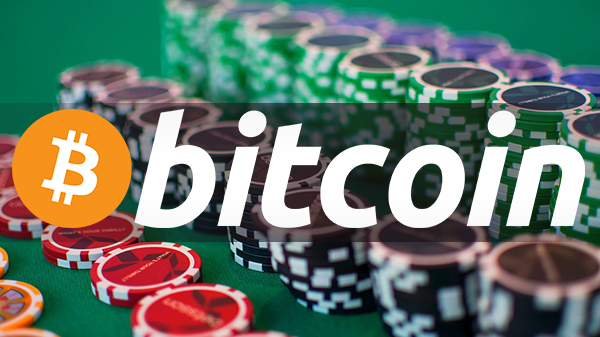It’s strange for an old-school guy like me to think that a virtual currency is being used to play poker.
I’m used to using what I’d consider traditional payment methods to fund my own action – cash, credit cards, and eWallets. A few months ago, I couldn’t have told you what BitCoin is if you’d sat down and patiently explained it to me for an hour first.
BitCoin poker is, really, a thing. A few poker rooms and other gambling sites are now accepting BitCoin as a payment method.
So what is it? And how is it being used to fund online poker accounts?
What Is BitCoin?
Bitcoin is a virtual currency invented in the year 2008 by a person going by the pseudonym “Satoshi Nakamoto.” The first mention of the currency was in a document sent to a cryptography mailing list made up of just a few people. Not much is known about the person (or people) behind the pseudonym, and they left the project altogether in 2010.
It’s interesting that the project was first mentioned among a small group of cryptographers – BitCoin was invented to exist without the need for a financial middle man. Taking banks and fragile world governments out of the equation produces a more stable and equitable currency, and it means that BTC (the currency’s acronym) are immune from seizure or asset freezing. Or so the theory goes.
So what is a BitCoin? You can’t hold one in your hand, in the traditional sense. It exists in the same way that an email exists – stored in a digital cloud. One important thing to note, for those of us used to fiat money, there is no FDIC or other insurance for your BTC.
Why Use BitCoin?
Here are some popular reasons suggested by blogs and message board posts:
BTC is crypto-currency, which means using it is completely private and anonymous.
Yes, transactions are recorded in a public log, for accountability purposes, but names of people involved in transactions are kept secret, hidden behind a generic wallet ID. There’s a dark side to this – goods can be bought or sold online and authorities can’t easily trace the people involved. That means lots of people are participating in illicit activity (see the story of The Silk Road for a perfect example) using this currency.
BTC allows you total control of your money.
Its value can’t be manipulated by any outside entity. Essentially, using BTC turns you into your own bank. The currency’s lack of physical production costs and non-existent need for storage makes it even easier to handle at the end-user level.
Big companies are bringing it into the mainstream.
BTC wasn’t well known until 2011, when the mainstream press got word of its early and rabid adoption by the Technorati. Now, thousands of businesses all over the world accept it as a mainstream payment method, including some surprisingly big names. You can buy your next Dell laptop with BTC, or shop for a cheaper alternative at Overstock.com. Cities saturated with tech geeks now have ATMs where you can exchange cash for BTC, and the other way around.
How Does BitCoin Poker Work?
The reason BitCoin struck me as so strange initially was simple – I am used to traditional (known as “fiat”) currency. So is everyone reading this – it’s what we’re used to, so any alternative feels a little strange.
The first thing a poker player who wants to use BTC needs to do is exchange their native currency for their new virtual currency.
The popular method of purchasing BitCoin is to deal with an exchange or brokerage. Exchanges are places where buyers and sellers are matched based on their bid criteria, while brokerages hoard large collections of BTC that they sell on-demand at a variable rate.
Exchanges and brokerages are pretty much identical for the end-user. It literally takes a minute or two to complete the transaction.
The BTC are then transferred to you through your unique Bitcoin wallet ID. Think of it as a hyper-focused email address for virtual currency. What’s neat about that is you can send money to anyone in the world using BTC, the same way you can send an email across the globe in a second.
Your wallet ID (BTC address) will be a randomized string of letters and numbers, anywhere from 27–34 characters long. That wallet ID is also the place buyers will send cash – which makes the whole email address analogy easier to understand. BitCoins can be sent or received from anywhere, or even sold among friends or in person.
Now that you’ve got your currency in your virtual wallet, it’s time to transfer it to the poker room of your choice. After confirming that the room you want to play at accepts BitCoin, simply send the appropriate amount to their wallet ID. It takes anywhere from a few minutes to a few hours for the BTC to appear in the receiving account.
As an added bonus for poker players, transferring with BTC is totally free, thanks to the virtual nature of the currency. It costs nothing to send and receive virtual money, so you shouldn’t expect any additional transfer fees from your poker room’s cashier department.

 MENU
MENU















